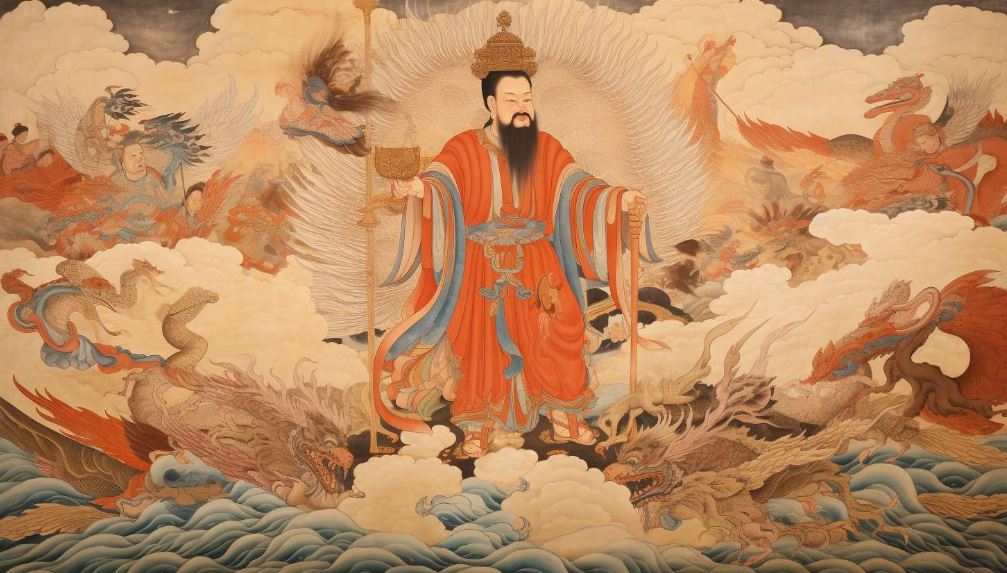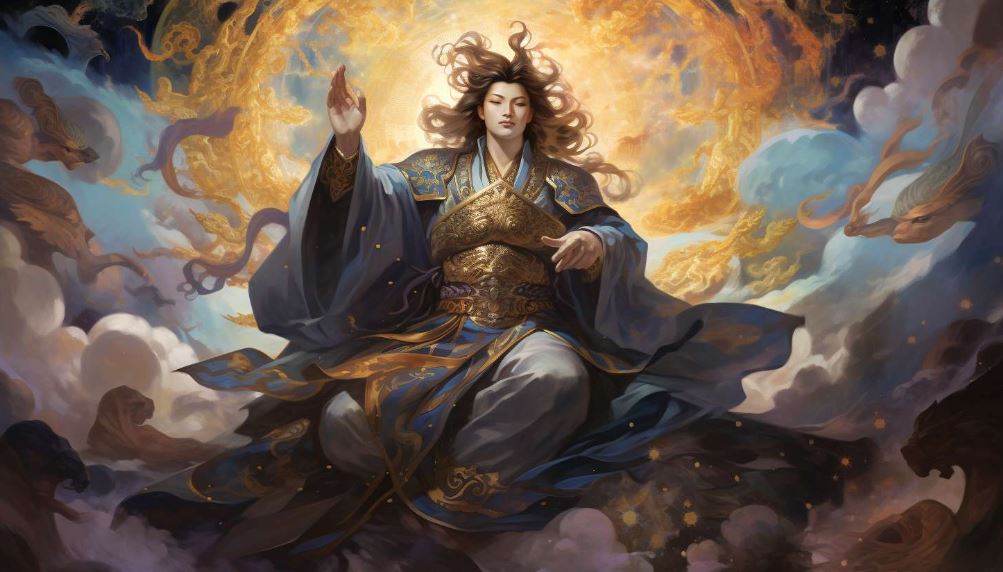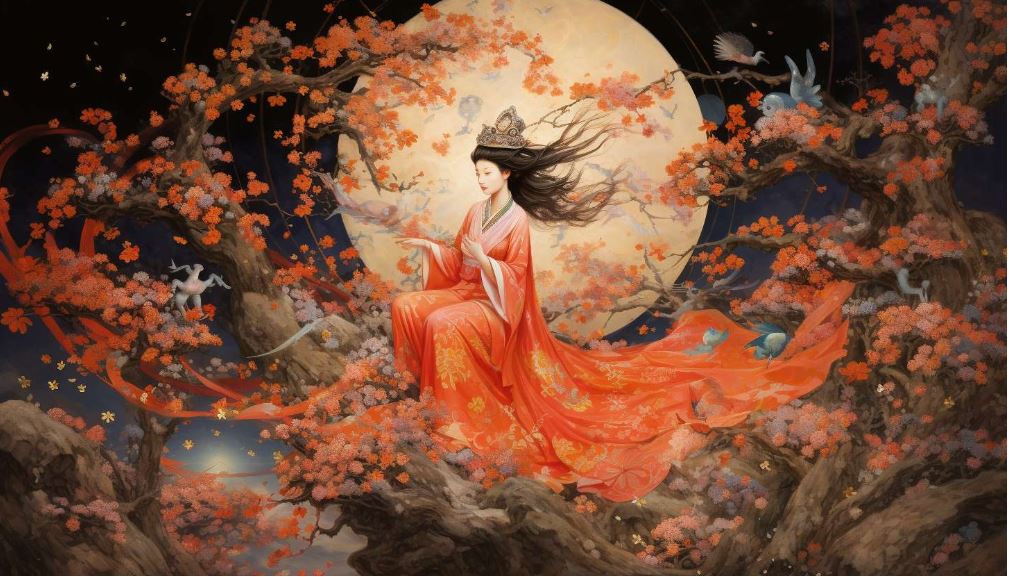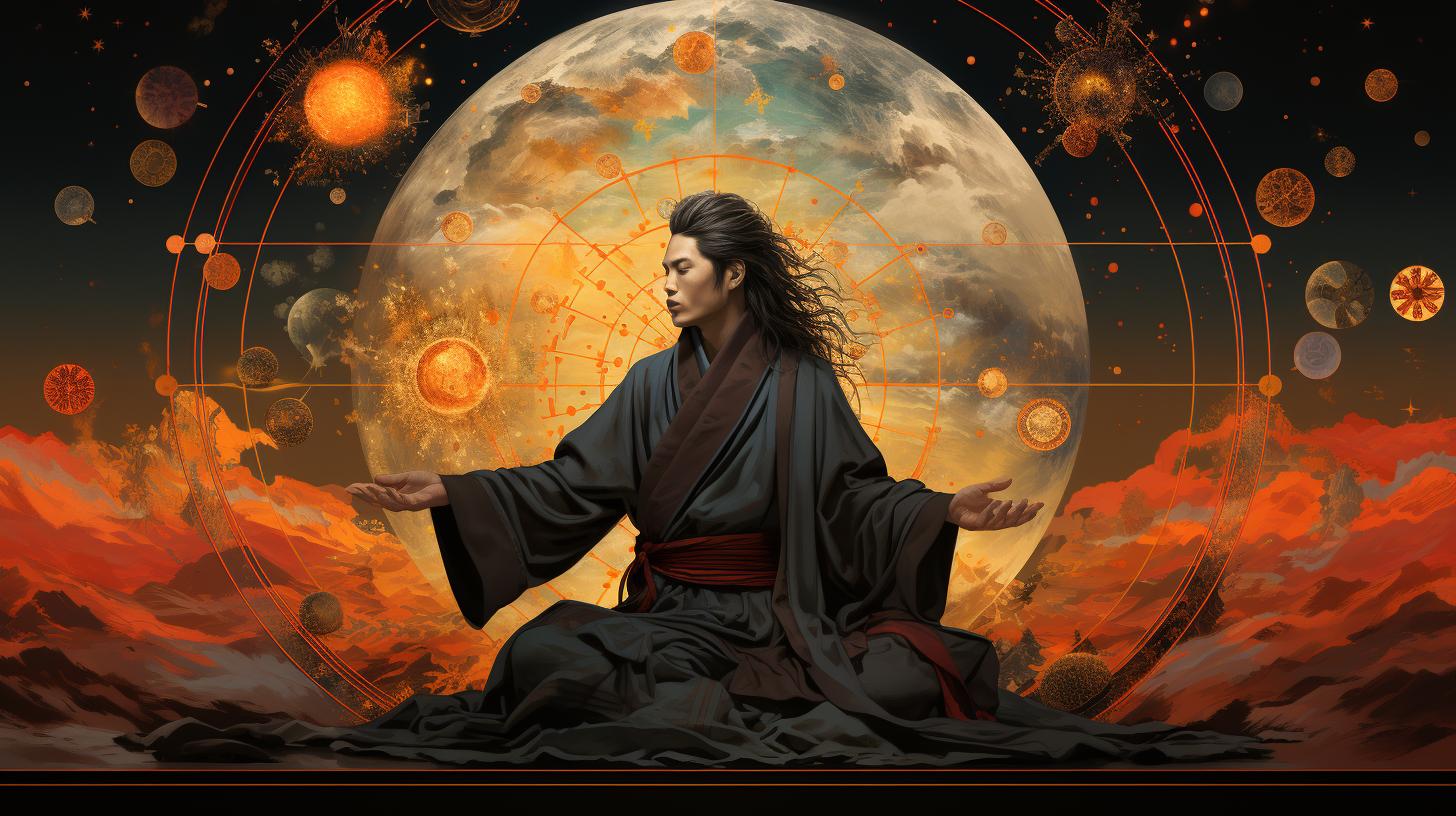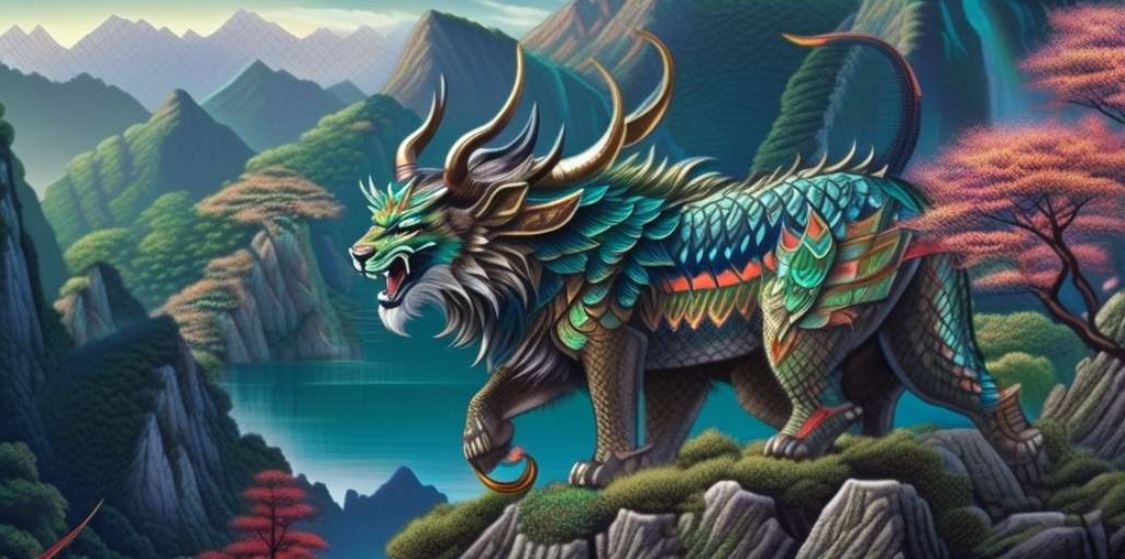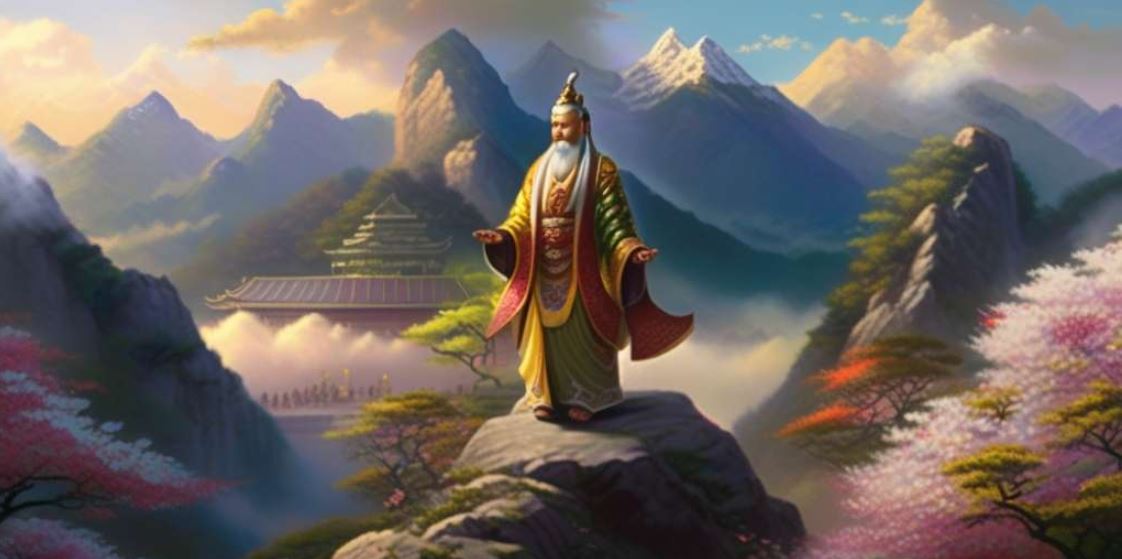Sang-Je: The Korean God of the Skies Unveiled
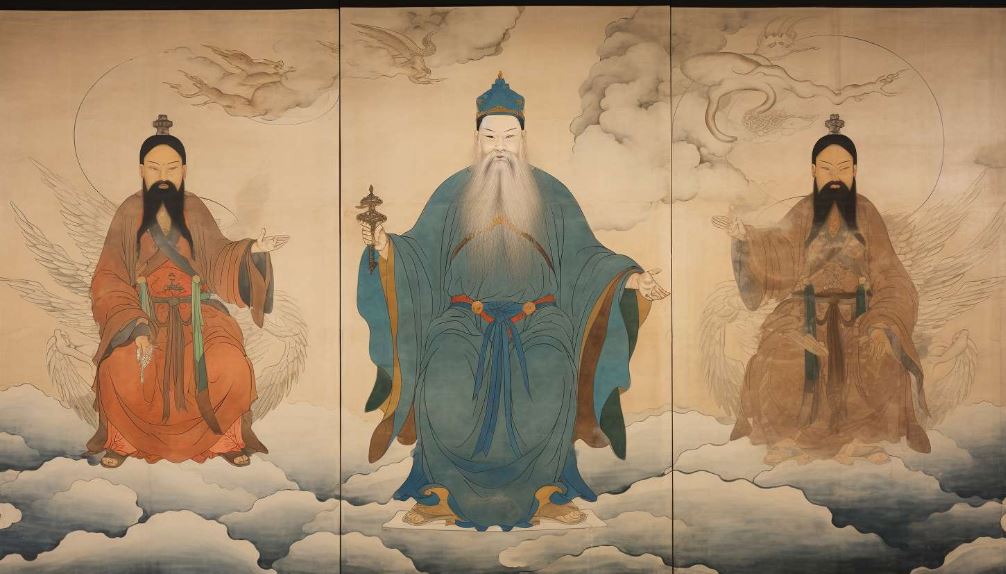
Sang-Je, also known as Haneullnim or Haneul, is the Korean god of the skies. This ancient deity is often depicted as a wise old man with a long beard and holds great significance in Korean mythology.
Sang-Je is associated with other gods like Hwanin, Hwanng, and Dangun, who are vital figures in Korean folklore. With comparable abilities to deities in other mythologies, such as Zeus and Odin, Sang-Je’s role is crucial in shaping Korean religion, culture, and society.
This article explores the mythology, symbolism, and influence of Sang-Je in modern-day Korea.
Overview of Sang-Je Korean God
Sang-Je, also known as Haneullnim or Haneul, holds a prominent position in Korean mythology as the god of the skies.
Depicted as a wise old man with a long beard, he is often compared to gods like Zeus and Odin in other cultures. Sang-Je’s significance extends beyond mere celestial representation, as he is intricately intertwined with the gods Hwanin, Hwanng, and Dangun in Korean mythology.
Dangun, the son of Hwanin, is the god of the earth and the father of the esteemed deity Dagun. With comparable abilities to other deities across different mythologies, such as Amenominakanushi in Japanese mythology, Indra in Indian mythology, and the Jade Emperor in Chinese mythology, Sang-Je holds a place of great reverence in Korean folklore.
Known as the ruler of the celestial realm, Sang-Je’s influence permeates multiple facets of Korean society. His association with other key deities like Hwanung, Haemosu, and Mireuk further solidifies his importance within the pantheon.
Through his timeless wisdom and celestial authority, Sang-Je continues to shape Korean religion, culture, and belief systems even in the modern era.
The Mythology of Sang-Je
Sang-Je’s mythology is deeply rooted in Korean folklore, offering a rich tapestry of stories and legends that shed light on his divine nature and significance. Here are some key aspects of Sang-Je’s mythology:
- Sang-Je is often portrayed as an elderly figure with a long beard, symbolizing wisdom and experience.
- He is associated with the gods Hwanin, Hwanng, and Dangun in Korean mythology, with Dangun being the god of the earth and an important deity in his own right.
- Comparable to other deities across different mythologies, such as Amenominakanushi in Japanese mythology, Indra in Indian mythology, and the Emperor of Jade in Chinese mythology, Sang-Je possesses remarkable abilities.
- His role as a ruler of the celestial realm draws parallels to Zeus and Odin in Western mythologies.
- According to legend, Sang-Je’s offspring, including Hwanung and Dangun, have played significant roles in shaping the mortal realm and the course of Korean history.
These captivating myths reveal the multidimensional nature of Sang-Je and provide valuable insights into the beliefs and values of Korean culture.
The Role of Sang-Je in Korean Religion and Culture
They reinforce the religious and cultural bonds within the community.
3. Dialogues and Teachings: Sang-Je’s mythological tales and teachings are transmitted through generations, shaping Korean religious and cultural identity. His stories serve as moral guides and sources of inspiration, encouraging ethical behavior, justice, and harmony.
4. Art and Symbolism: Sang-Je’s representation in art, literature, and symbolism further highlights his significance in Korean culture. His image as a wise elder with a long beard symbolizes wisdom, experience, and divine authority.
In conclusion, Sang-Je’s role in Korean religion and culture encompasses spiritual guidance, presence in ceremonies and festivals, transmission of dialogues and teachings, and representation in art and symbolism. His influence extends beyond mere mythology, shaping the beliefs, values, and cultural fabric of Korean society.
The Relationship Between Sang-Je and Other Deities in Korean Mythology
In Korean mythology, Sang-Je, the god of the sky, holds an intricate relationship with several other deities. One such deity is Dangun, the god of the earth and the son of Hwanin, who plays a crucial role in the creation of the Korean civilization.
Dangun‘s connection to Sang-Je establishes a divine lineage that shapes the foundation of Korean mythology.
Additionally, Sang-Je’s association with Hwanin, Hwanng, and Dangun reveals a complex family dynamic within Korean mythology. Hwanin, the lord of heavens, is believed to be the father of Hwanng and the grandfather of Dangun.
Furthermore, it’s worth noting that other deities from different mythologies bear similarities to Sang-Je. For instance, Amenominakanushi in Japanese mythology, Indra in Indian mythology, and the Emperor of Jade in Chinese mythology all share comparable qualities and attributes with Sang-Je.
The Symbolism and Representations of Sang-Je
The Beard
Heavenly Realm
Sang-Je’s association with the heavens represents his role as the ruler of the celestial realm. He is believed to watch over mortals and listen to their prayers, offering blessings and divine guidance.
Comparisons to Other Deities
Sang-Je’s comparisons to Zeus, Odin, and other powerful deities from diverse mythologies emphasize his elevated status. These comparisons suggest his role as a central figure in Korean mythology and his strength in shaping the world.
Father of Gods
Sang-Je’s role as the father of deities, such as Dangun and Haemosu, accentuates his importance and generative power. He serves as the progenitor of significant figures who play pivotal roles in Korean history, culture, and religious beliefs.
The symbolism and representations associated with Sang-Je illuminate the depth of his influence and significance in Korean mythology. His traits, comparisons, and divine role contribute to the rich tapestry of Korean culture and beliefs.
Sang-Je’s Influence on Korean Society
Sang-Je, the Korean god of the skies, holds immense influence over Korean society, touching various aspects of life and culture in the country. Here are some key ways in which Sang-Je’s presence resonates in Korean society:
- Cultural Celebrations: Sang-Je is celebrated in various traditional Korean festivals and rituals, where his wisdom and guidance are honored and sought.
- Religious Practices: Many Koreans consider Sang-Je a divine protector and pray to him for blessings, peace, and prosperity.
- Art and Literature: Sang-Je’s iconic portrayal as an elderly wise man with a long beard frequently appears in Korean art and literature, symbolizing wisdom and celestial power.
- Social Values: Sang-Je’s reverence reinforces important social values in Korean society, such as respect for elders, wisdom, and the pursuit of knowledge.
- Architectural Influence: Various temples and religious structures are dedicated to Sang-Je, showcasing his significance in the architectural landscape of Korea.
- Mythological Inspiration: Sang-Je’s stories and legends continue to inspire modern creativity, influencing Korean movies, dramas, and literature.
These aspects and more demonstrate how Sang-Je’s influence pervades Korean society, shaping beliefs, traditions, and cultural expressions.
The god of the skies remains an integral part of Korea’s identity even in the modern era.
Frequently Asked Questions about Sang-Je Korean God
Curious about Sang-Je, the Korean god of the skies? Here are some frequently asked questions that will shed light on this fascinating deity:
- Who is Sang-Je?
Sang-Je is a prominent figure in Korean mythology, known as the god of the heavens or the sky.
He is depicted as an elderly wise man with a long beard, and his wisdom and guidance are highly revered.
- How does Sang-Je compare to other gods?
Sang-Je shares similarities with gods from different mythologies around the world. He is often compared to Zeus and Odin in Greek and Norse mythologies, respectively.
This highlights the significance and power associated with Sang-Je in Korean folklore.
- What is the role of Sang-Je in Korean religion and culture?
Sang-Je holds a central position in Korean religious practices and cultural beliefs.
As the god of the skies, he is regarded as a divine protector and a provider of guidance and blessings.
- Are there any other deities associated with Sang-Je?
Yes, Sang-Je is connected with other gods like Hwanin, Hwanng, and Dangun in Korean mythology.
These gods form an intricate web of relationships, contributing to the rich tapestry of Korean folklore.
These frequently asked questions provide a glimpse into the intriguing world of Sang-Je, allowing us to appreciate the profound influence this Korean deity has had on the religious and cultural landscape of modern Korea.
The Legacy of Sang-Je in Modern Korea
The influence of Sang-Je, the Korean god of the skies, continues to reverberate in modern-day Korea, shaping various aspects of the country’s culture, religion, and identity.
One significant aspect of Sang-Je’s legacy is his role in shaping the belief system and religious practices of the Korean people. Many Koreans continue to revere Sang-Je as a guardian deity, seeking his blessings for protection and prosperity.
The temples dedicated to Sang-Je serve as important cultural and spiritual centers, attracting visitors from both within Korea and around the world.
Moreover, Sang-Je’s mythology and symbolism have become integral parts of Korean arts, literature, and popular culture. Paintings, sculptures, and other artworks often depict his iconic image as an elderly sage with a long beard, instilling a sense of reverence and wisdom.
Sang-Je’s enduring presence in literature, films, and television dramas reflects the ongoing fascination with Korean mythology and folklore.
Furthermore, Sang-Je’s teachings and values emphasizing harmony, wisdom, and respect continue to guide the moral compass of Korean society. His profound influence can be seen in the strong emphasis on filial piety, respect for elders, and the pursuit of knowledge ingrained within Korean culture.
The profound legacy of Sang-Je serves as a reminder of the rich cultural heritage of Korea, connecting the past with the present and shaping the aspirations of future generations…….

